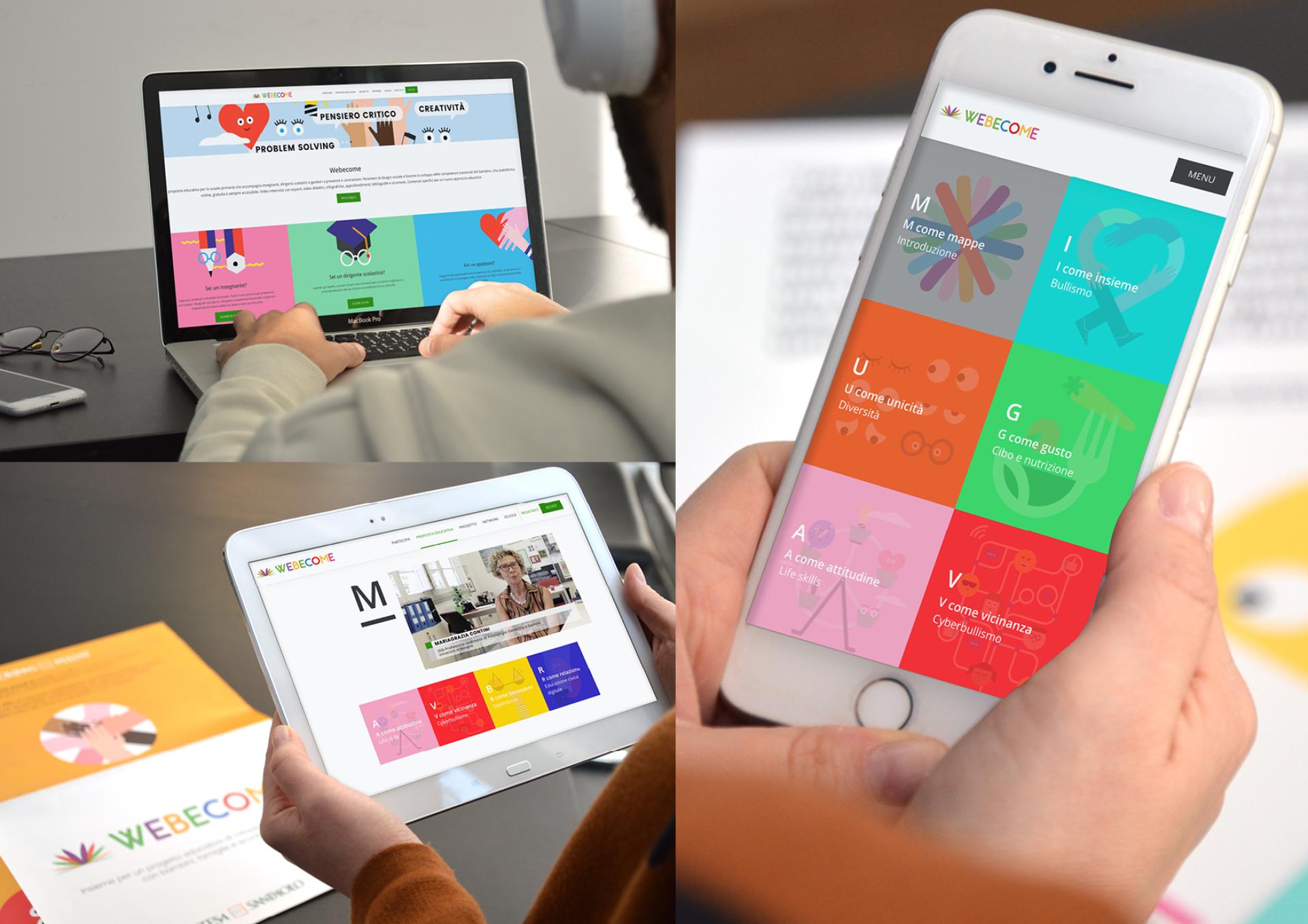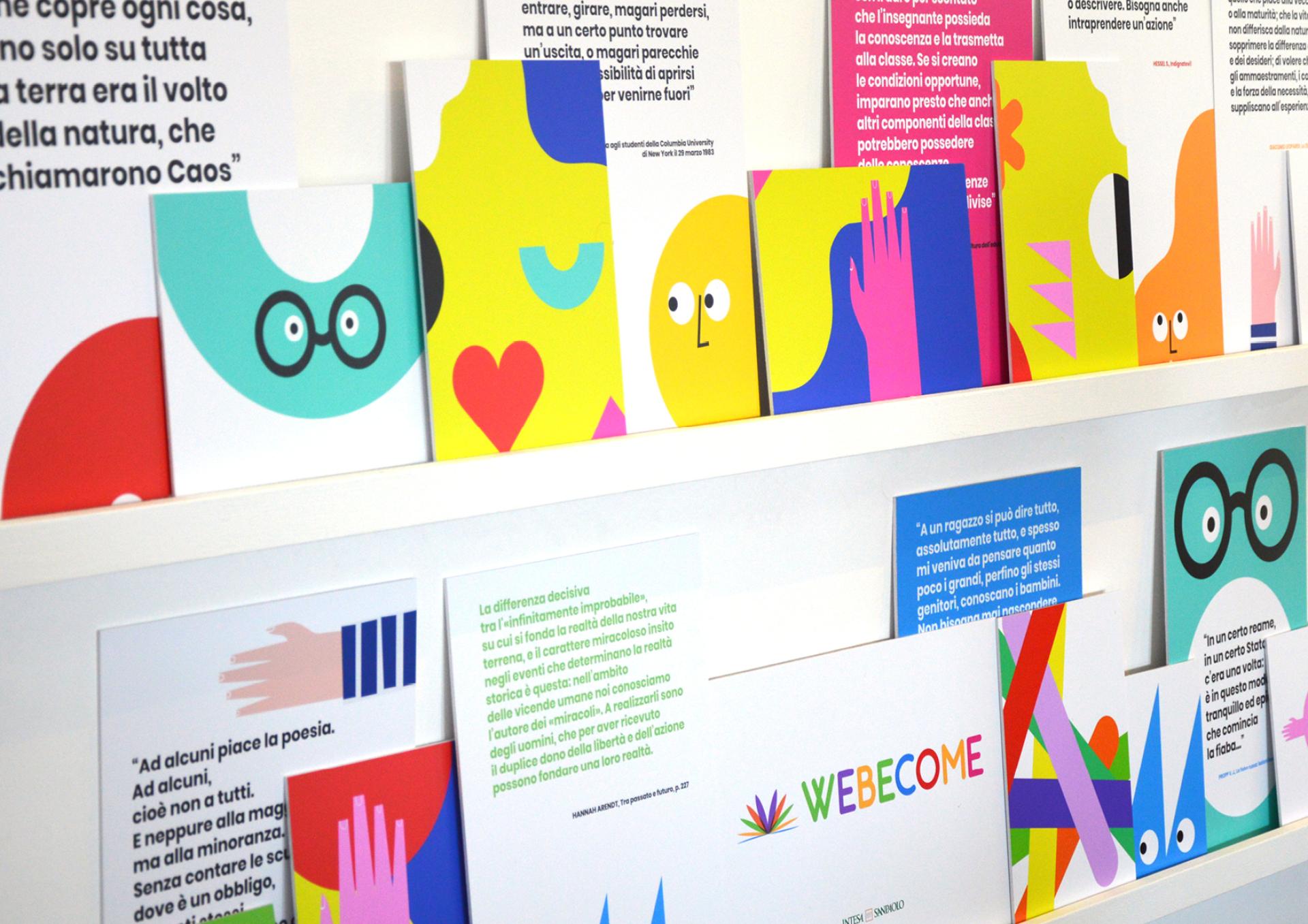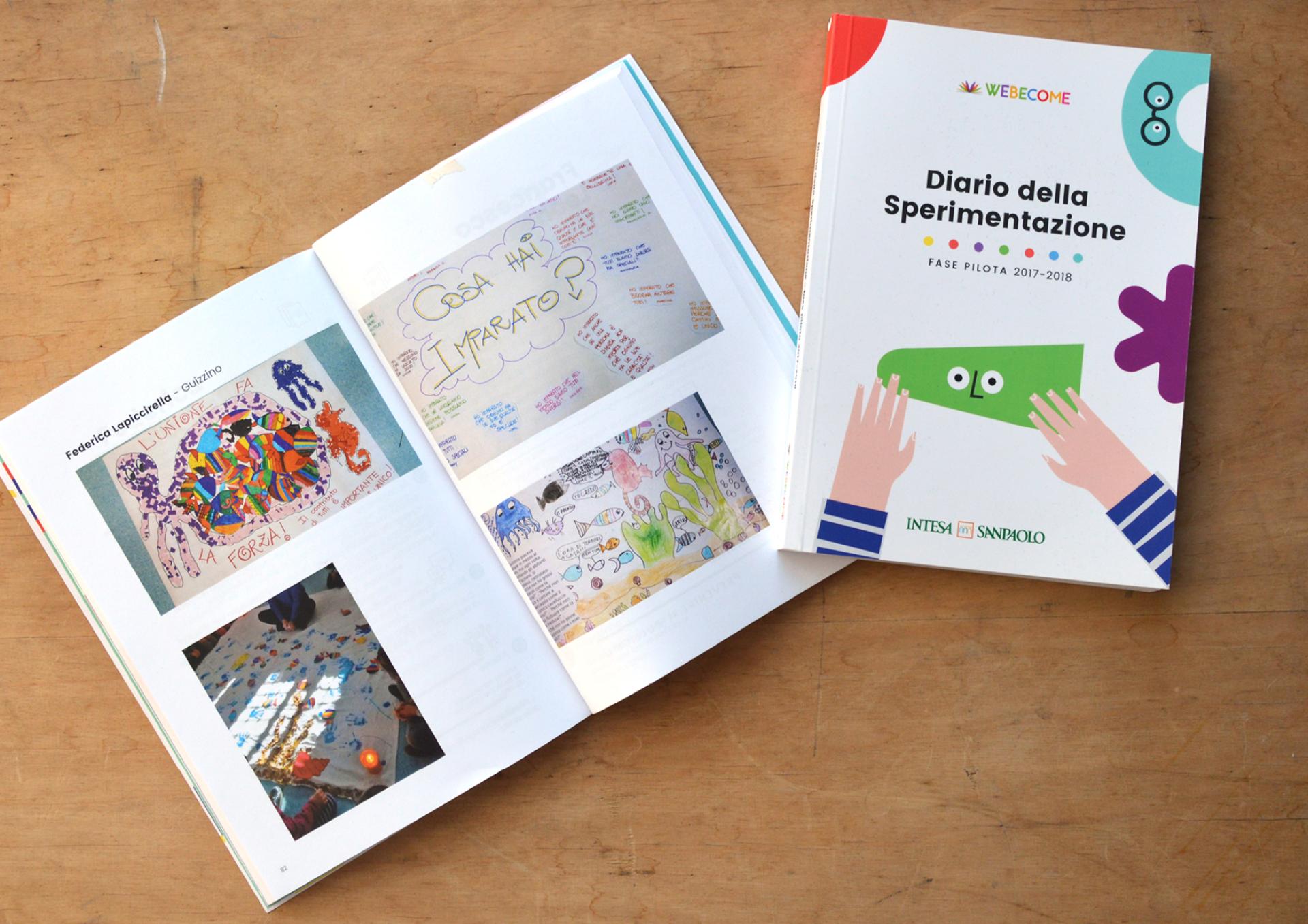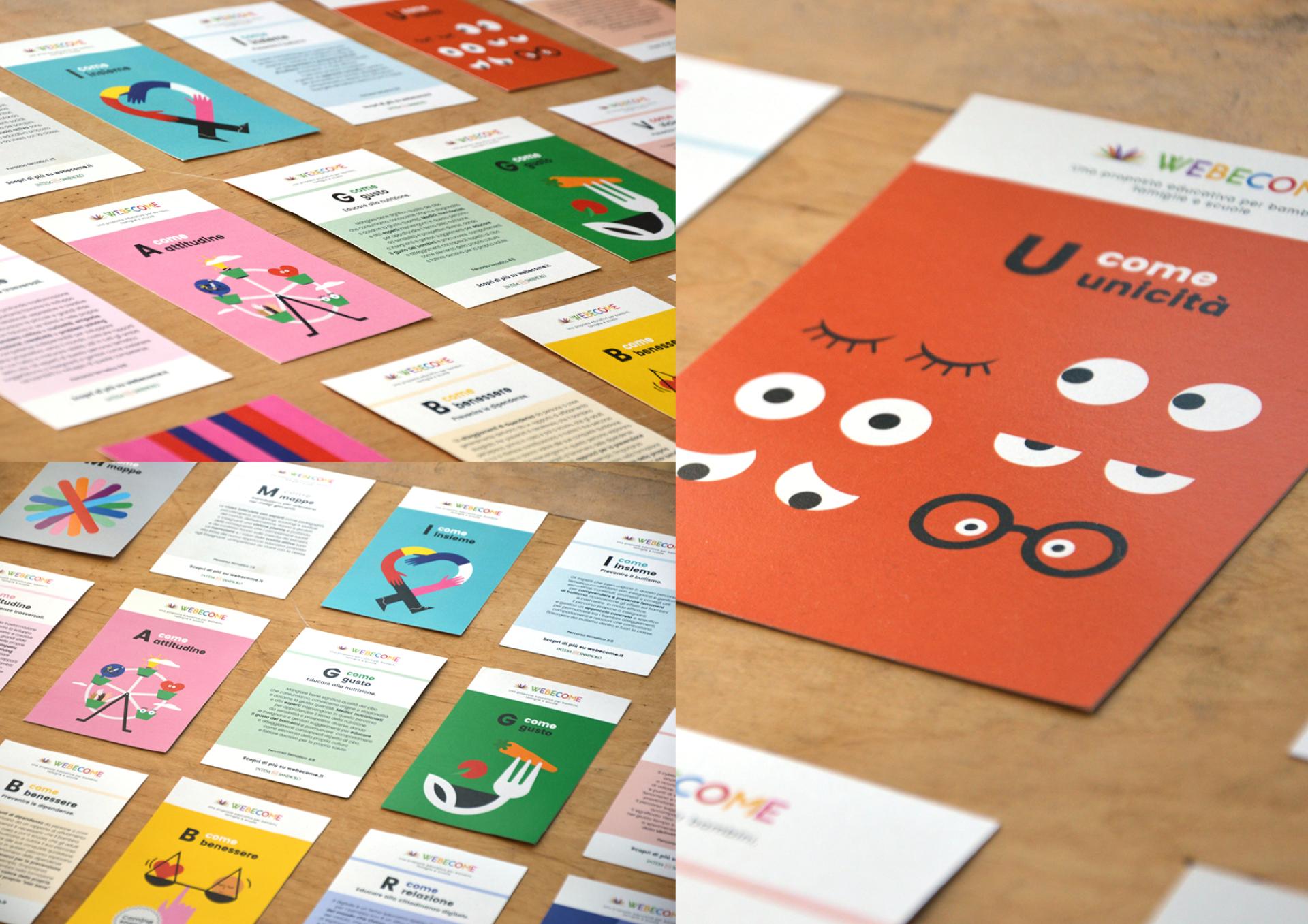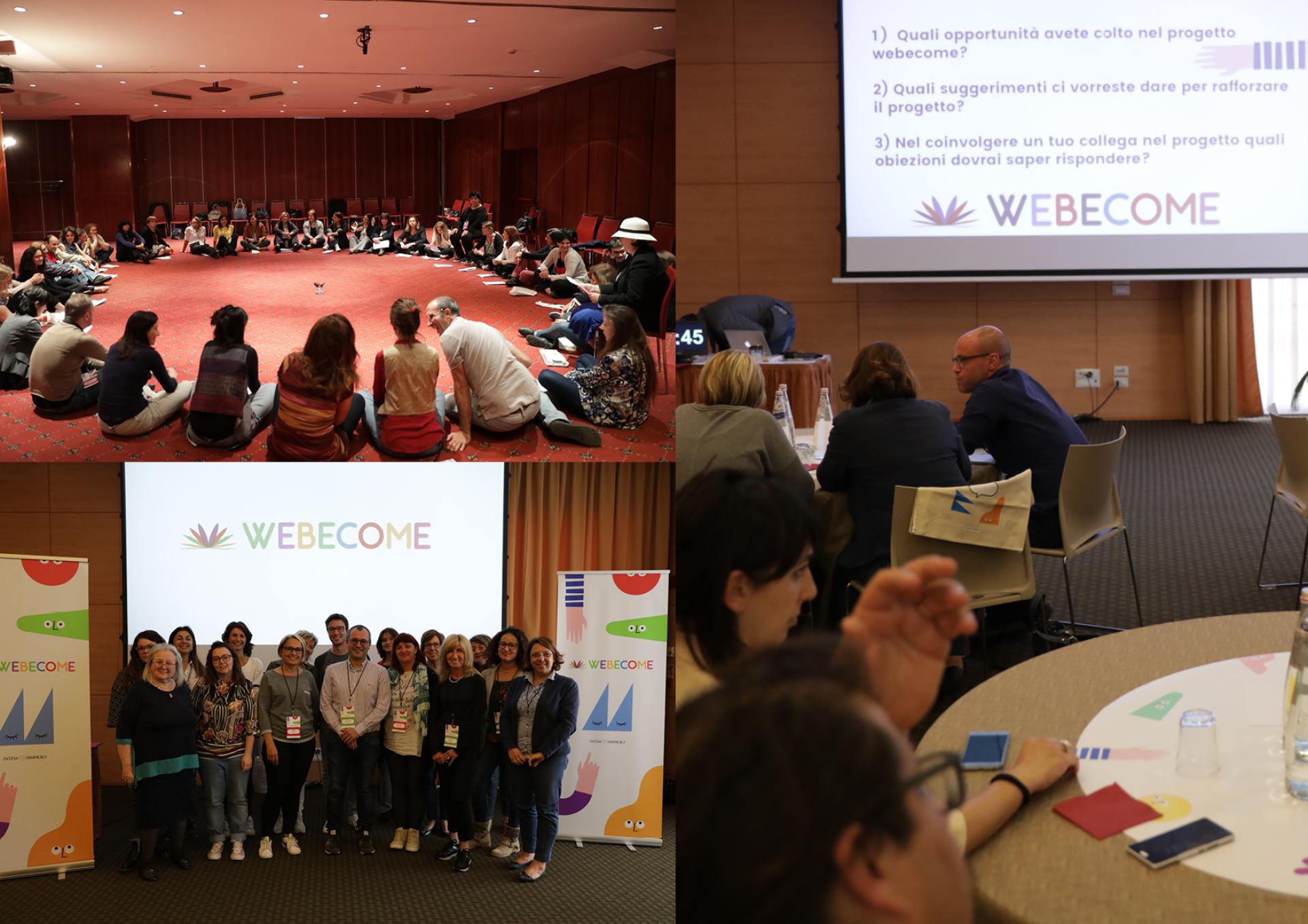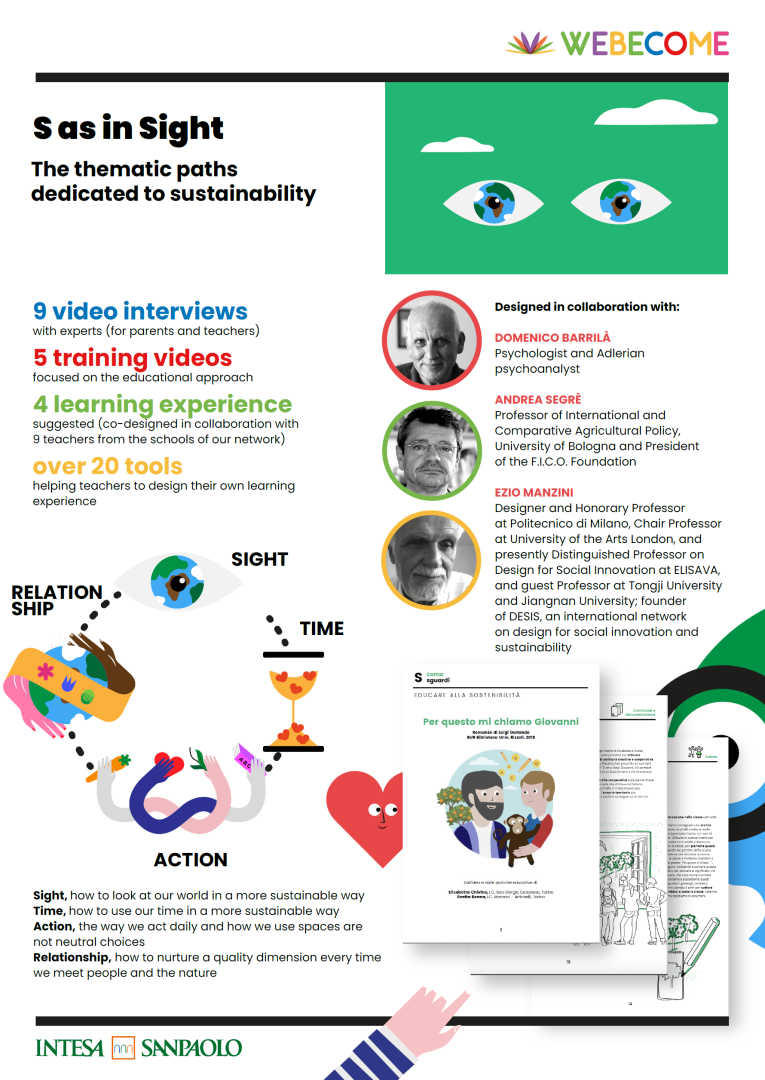Webecome
Basic information
Project Title
Full project title
Category
Project Description
Webecome is an educational proposal for Italian primary schools that supports teachers and parents in identifying the latest phenomena in terms of social hardship and understanding how to prevent them by helping children to develop social, cognitive, and creative abilities in a balanced way. The online platform offers nine thematic paths designed in collaboration with more than 60 experts, helping teachers and parents to recondition a positive environment both in the classroom and at home.
Project Region
EU Programme or fund
Description of the project
Summary
We are living in ever-changing world: our society is being restructured in its entirety by the advent of digital and social media, migration, economic crises, new forms of poverty, and the emergence of new relationship models. These issues open complex questions in the world of education that can only be answered by building plural and inclusive points of view. We engaged more than 60 experts (pedagogues, psychologists, doctors ) to design nine thematic paths, with a positive and proactive approach that does not stigmatize wrong behaviours, but rather aims to develop and strengthen habits, sensitivities, and positive attitudes among children. Webecome’s L’Alfabeto per Crescere enhances this approach by characterizing each path with a specific keyword, proposed as an educational value. M as in Maps (understanding social hardships) T as in Together (bullying), U as in Uniqueness (diversity), T as in Taste (nutrition), C as in Closeness (cyberbullying), A in as Attitude (life skills), W as in Well-being (addictions), R as in Relationship (digital citizenship), S as in Sight (sustainability). Each path supports teachers and parents in their awareness of these phenomena and of how to recognize them in children’s behaviours. The online platform provides teachers and parents with:
- over 500 online contents, such as learning objects, experts’ video-interviews, and stories collected from schools and families about the effectiveness of Webecome
- over 30 design tools, supporting teachers in the in-class implementation of positive and engaging experiences that help children to understand and experiment with values and behaviours
- over 2.000 hours of digital asynchronous learning
- An ongoing schedule of interactive virtual classroom sessions with experts from our network, focused on specific educational issues
- Tools for exchanging best practices and experiences among teachers and parents
Key objectives for sustainability
New forms of social distress such as bullying, cyberbullying, discrimination, addiction, and marginalization affect people, as children today and as adults tomorrow. To be citizens able to assume an active role in the current context, and to choose and decide the direction to take in their present and future, it is necessary to help children to develop life skills such as creativity, problem solving, communication, and emotional and social intelligence. In the path S as in Sight (sustainability), launching in June 2021, Webecome provides teachers and parents with content and tools to help them introduce to the educational relationship a focused awareness of how to look at our world in a more sustainable way. How we use our time, how we manage our relationships, the actions we take and how we use spaces are not neutral choices from a sustainability standpoint. Living slow brings quality to every relationship, but it is also a good point of view from which to regard our daily actions- such as the food we choose, toys and objects we use, and how we move into our towns and cities -in a practical way. We want children to be aware of a specific kind of sight, a vision that nurtures every relationship they manage in their daily life. Looking at sustainability from a social point of view, all the thematic paths in Webecome give a useful perspective. Webinars with experts, online learning content and other specific tools help teachers to involve the classroom in experimenting with the meaning of sustainability in their daily life. Over the last few years, we have collected hundreds of testimonials (from teachers and parents) on how managing learning experiences in classrooms using the approach suggested by Webecome brings real impact to the mindsets and behaviours of children. Here you can find these accounts published in Webecome:
Key objectives for aesthetics and quality
We believe that beauty is a primary human need: be it the beauty of a word, of a gesture, of a relationship, or of the spaces and time in which we live. The aesthetic dimension plays a specific, important role in the educational relationship because it creates the conditions in which for children to relate to others (people, environment, knowledge) in a positive and engaging way. We also want to show how Webecome differs from other projects focused on social hardship which use a language (in terms of words, graphic signs and images) that tends to stigmatize wrong actions and behaviour, for example, by showing the effects of bullying situations (violence and loneliness) or bad nutrition habits (weight gain). Working on social hardship in a positive way requires a specific communication and graphic language (visible in all the contents available on Webecome) that we designed and tested with teachers, parents, and children. During the test phase we involved more than 300 families, via online tools, to get their preferences and judgments about three different visual concepts. In these functional tests (and in every meeting in schools) we are pleased to receive positive feedback about how the uniqueness of Webecome is immediately perceptible. Safeguarding the beauty of the environment where educational experiences take place is crucial. Webecome suggests and helps teachers to design and manage narrative experiences that start from taking care of the classroom setting (or other spaces inside or outside schools), bringing objects, content, and materials that are easy to collect from daily life and coherent with the values they want children to focus. Designing a unique environment helps generate surprise and communicates that something new is about to start. This captures attention, generating engagement and contributions from children who share with their teachers and peers thoughts, fears, desires that otherwise rarely emerge in the traditional approach.
Key objectives for inclusion
Practically all our paths help teachers and parents to let children experiment with the positive effects of inclusion and collaboration. T as in Together (bullying), U as in Uniqueness (diversity), C as in Closeness (cyberbullying), and R as in Relationship (digital citizenship) are completely focused on this goal. Webecome’s learning experiences valorise the active role of each and every child, creating the right conditions for them to express themselves (with creative labs in drawing, painting, writing…) and cooperate together through theatre or teamwork activities, for example. They have to come together to a shared experience made up of listening to stories, conversational moments, and practical and physical activities that allow them to understand and explore the meaning of the learning experience through different languages (poetry, storytelling, painting, acting, playing, building…). The collaborative, inclusive and open approach of Webecome proposes narrative experiences structured in seven key moments that enhance children’s active and leading roles: focus on the values and method and choose a story format such as novels, myths, poems,…(1), set a specific environment (2), welcome and onboarding moment (3), storytelling (4), design practical, cooperative labs (5), manage conversation (6), continuous learning (7). Cooperation allows children self-discovery, knowledge adoption, and acceptance of others. Using time and space as an educational resource helps adults to understand the needs and requests of each child. Webecome enhances the leading role of the teacher, who can interpret and customize the educational tools according to their class’ needs. There are no pre-established formulas and manuals to be applied but instead a shared approach, that each teacher is invited to enrich by bringing their own content, their own stories and the specific experiences of each class.
Results in relation to category
Webecome breaks the traditional teaching approach to different disciplines. They should not be separated as individual fields of learning but all of them (history, geography, literature, maths, civic education, sports and all the arts) should be considered part of the human experience in the world. That is why Webecome’s learning paths bring together in one unique experience content and tools that help children to develop creativity, problem solving, prototyping, communication, social and emotional intelligence, self-efficiency, collaboration, initiative, curiosity, and critical thinking. This is done with the same focus and importance that schools traditionally pay to basic literacies. Only by perceiving the continuity of their experiences can children develop a significant understanding of the world in which they live. This is a condition and a prerequisite for their ability to design and figure out how (in the present and future) to make a difference and live the uniqueness of their life in an authentic way. This is the single most important goal of education. Documenting the learning experience in the classroom valorizes the outcome from group activities, and strengthens the relationship between teachers and parents, giving them more clues and signals about how the each child’s educational growth is going. The online platform provides teaches with individual spaces with which to share these documents with families (inviting them with the easy-to-use online tools made available): an effective way to make the educational environment one coherent whole.
How Citizens benefit
Designing and managing a service with social impact goal requires in-depth knowledge of the context, a collaborative approach, multidisciplinary skills and a solid vision of the impact and utility that this service wants to generate. The Webecome team has been led by Intesa Sanpaolo in collaboration with Logotel, Independent Design Company, in all the designing and implementing phases. It has been progressively enriched also with experts, associations and other companies that have brought specific skills and experiences, contributing to the definition and consolidation of all the didactic and interactive aspects. The collaborative dimension has been a constant ingredient in the implementation phases. We involved experts, school managers, teachers, parents, and children in a structured process of listening, need analysis, planning, enacting, experimenting and reviewing. This approach has been fundamental in delivering quality content and tools that really support parents and teachers in dealing with their children’s education, with greater awareness about the various aspects that must be are considered in Webecome. The co-design phase, for example, involved 100 schools from 6 different regions and over 120 teachers in 4 workshops (in Milan, Padua, Rome and Bari). Each experimentation included two days of face-to-face workshops, divided into experiential moments for teachers; training on the principles of the educational approach and on the use of the platform; and meetings with experts. There were also structured moments of conversation with the school leaders involved, which revealed the experiences, specificities, and challenges of various regions. Posts on the platform and online chats and webinars with experts helped teachers, to create over 80 Experience Diaries in the 4-5 weeks following the workshop, featuring the story of the work done by each teacher and the results collected from over 2.500 children.
Innovative character
There are many initiatives dedicated to schools focused on one specific social hardship. We believe that one of Webecome’s most innovative characteristics is a specific approach that can be applied to virtually every educational challenge, because from the start, it considers the uniqueness of the people (child, teacher, parent) involved in a unique way. Educational communities need a new common ground (made up of values, deep understanding about the new challenges of education and a new shared approach) upon which to rebuild collaboration among adults in the children’s interest. The values of “active schools” must provide a new framework for educational initiatives not only, as is currently the case, for certain, outstanding schools, but to all the Italian territories. Facilitating conversations and proposing a new way to collaborate to teachers and school managers (and guiding them in the implementation) produces surprising results, especially for the people directly involved. For example, with our learning path parents become aware that talking about sustainability with children is not only about how we manage litter but is, in fact, a new way to look at and interact with our world as an ecosystem. Experimenting with narratives and a proactive approach, designing the way in which every child can contribute with their own experience, allows teachers to discover much more about their students and understand how to introduce new elements in positive conversations with families. Some teachers, for example, reported that the Webecome learning experience allowed them to understand why some children are reluctant to work together or why they are showing some behaviours (such as aggressiveness, shyness, sense of inappropriateness, loneliness…) gaining a deeper knowledge of the children’s interior worlds. Many of them reported a better class mood as an important result of applying the approach suggested by Webecome. You can find these testimonials in the links above.

